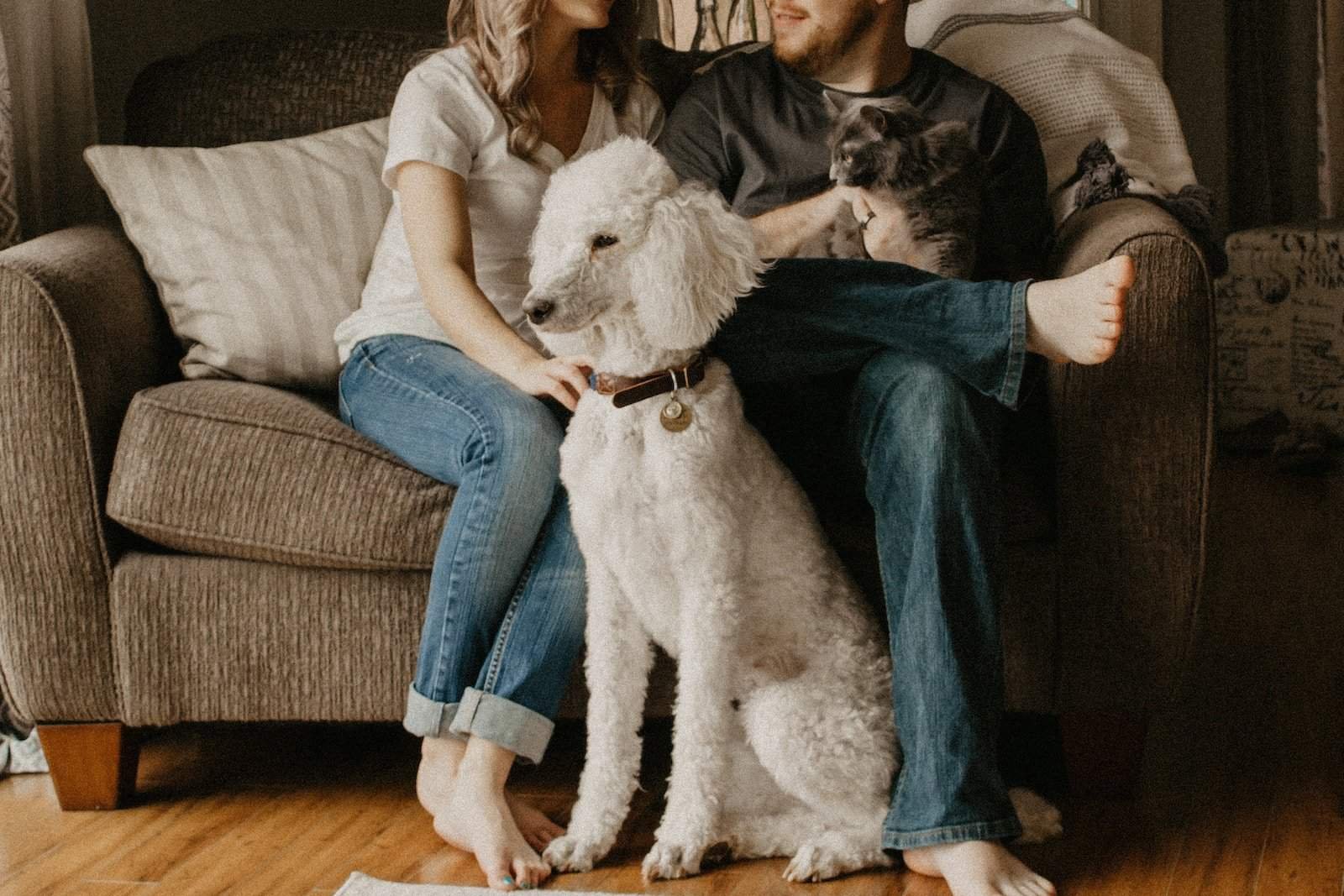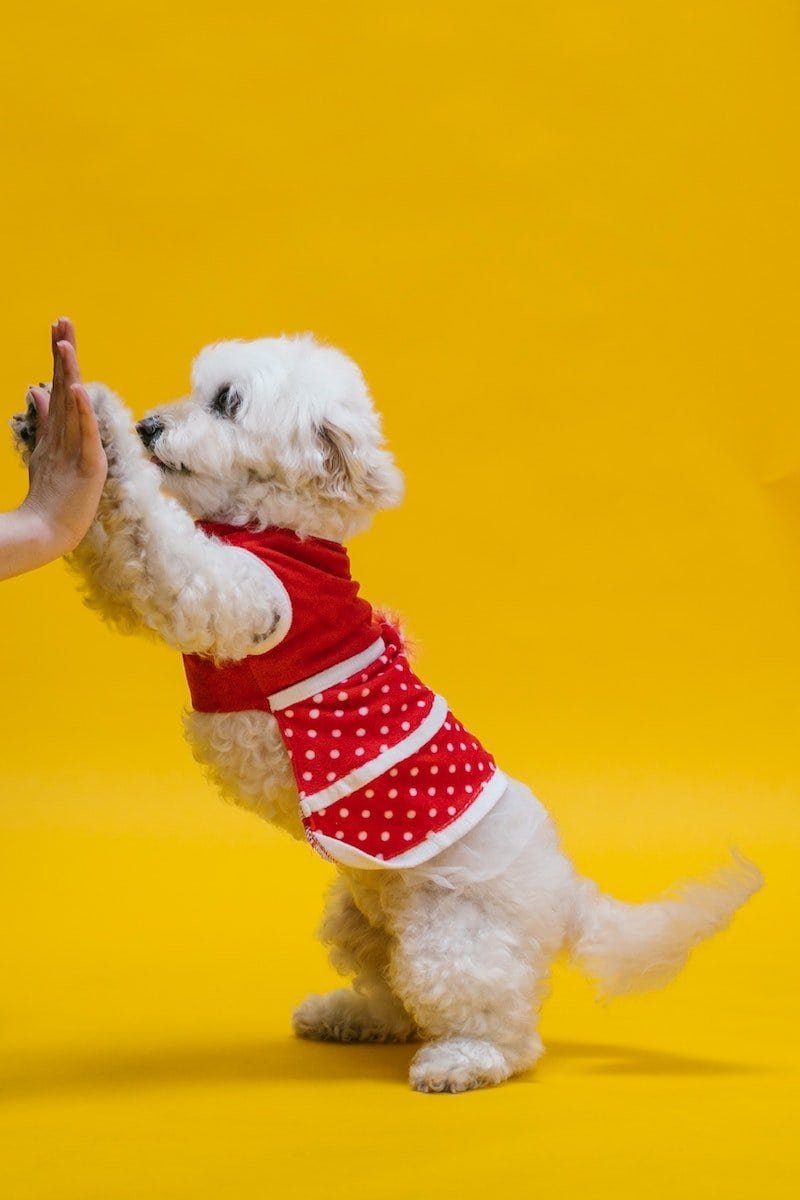
The Poodle is one of the most beloved and recognizable dog breeds in the world. It’s no wonder, as these dogs combine intelligence, trainability, and a loving personality that make them excellent companions for many families. But before you decide to bring a poodle into your home, it’s important to understand the breed’s specific behavior traits so you can best care for them. In this article, we will explore poodle behavior traits including their temperament and personality, living requirements, activity levels, intelligence & trainability, coat types and more. Whether you’re looking for a standard or toy poodle as a family pet or companion animal for yourself, this overview of the breed will give you an understanding of what to expect when owning one of these intelligent and loyal dogs.
About This Guide
- Real Experience: Written by poodle enthusiasts with years of hands-on experience caring for and training poodles.
- Expert Reviewed: Content verified by certified dog trainers and veterinary professionals.
- Fact-Checked: Information sourced from the AKC, veterinary journals, and breed specialists.
- Last Updated: November 2025
Personality
Poodles are known for their outgoing personalities and friendly nature. They love people and thrive on interaction, making them the perfect family pet. Poodles can be quite affectionate and loyal, forming strong bonds with their human companions. These dogs are also incredibly intelligent, so they require a great deal of mental stimulation to keep them occupied. From obedience training to new tricks, poodles enjoy learning new things and showing off their skills to their owners. As long as they’re given plenty of attention, exercise, and activities that challenge them mentally, poodles will remain content within their home environment.Poodles are the perfect companion for any family looking to add a furry friend to their home. With proper care and attention, your poodle will be sure to bring you years of love and companionship. And if you’re ready to learn more about the unique personality of these lovable dogs, stay tuned for the next section on Poodle Temperament & Personality!Poodle Temperament
Poodles are known for their cheerful, affectionate temperaments and intelligence. They love people and thrive on human interaction and attention. Poodles form strong bonds with their owners, so it’s important to spend plenty of quality time with them. Although they can be shy around strangers, poodles are generally friendly and rarely act in an aggressive manner.In terms of intelligence, these dogs have brains to match their beauty! Poodles can learn commands and tricks quickly, so they need regular mental stimulation to stay happy. Regular exercise is also important for these active dogs; all sizes of Poodle need daily walks or playtime, depending on their energy levels.Whatever size your poodle may be – from standard to toy – you can expect a lively yet loyal companion who loves being part of the family. With proper care and attention, your poodle will bring years of joy and companionship into your home!Living with a poodle can be an incredibly rewarding experience! Your furry friend will make sure that you never lack for love and companionship, so if you’re ready to share your life with one of these wonderful dogs, get ready for a lifetime of joy and laughter! And stay tuned for the next section about what you need to know to keep your poodle healthy and happy.Living With:
Living with a Poodle can be an incredibly rewarding experience! These intelligent and loving dogs form strong bonds with their humans and are always ready for an adventure. They’re cheerful and affectionate, so you’ll never lack for companionship or snuggles. Plus, poodles come in a variety of sizes, from the tiny toy poodle to the majestic standard size – so there’s sure to be a perfect fit for any home.Poodles require regular grooming, exercise, playtime and mental stimulation to stay healthy and happy. Grooming can be as simple as brushing their curly coats every day or taking them to a professional groomer if they have a more elaborate cut. Exercise is important too; larger poodles need more strenuous activity than toy breeds, but all sizes love daily walks or playtime in the park. Mental stimulation is also key – these smart pooches need plenty of puzzles and activities to keep their minds sharp!If you’re willing to give your poodle lots of love and care, you’ll be rewarded with years of joyous companionship! With their cheerful personalities and loyal hearts, these dogs make wonderful family pets that will bring laughter into your home for many years to come.Poodles at Home
Poodles are an intelligent and loyal breed of dog, making them the perfect choice for any pet-loving family. Not only are they friendly and affectionate companions, but they come in a variety of sizes to fit any home. From toy poodles that are just a few inches tall to standard poodles that can reach up to two feet in height, there’s a perfect fit for any living situation.No matter the size of your pup, all Poodles need plenty of love and care. They require regular grooming and exercise—larger breeds need more strenuous activity than smaller ones—and mental stimulation in order to stay healthy and happy. But with enough attention and daily walks or playtime at the park, your Poodle will reward you with years of faithful friendship!With their cheerful personalities, these beloved dogs make excellent family pets who will bring joy into your home for many years. So if you’re looking for a loyal friend with an eager-to-please attitude, look no further than a poodle!Choosing a Poodle will bring years of love and companionship to your home. Ready to learn more about their activity requirements? Keep reading to find out!Activity Requirements:
When it comes to keeping your Poodle healthy and happy, exercise is key. While the amount of physical activity needed varies from breed to breed, all poodles require at least 30 minutes of exercise per day. Bigger breeds will need more vigorous playtime like longer walks or runs outdoors, while smaller ones can usually get away with shorter daily strolls.In addition to physical activity, mental stimulation is also important for Poodles—and not just for the toy breeds! Keeping their minds active with interactive toys, puzzles, obedience training sessions and other mentally stimulating activities is essential. Not only does this help keep them contented and well-behaved, but it helps prevent boredom and destructive behavior.Overall, it’s important to remember that each Poodle’s exercise requirements depend on its size and energy level. But no matter what size your pup is, a combination of regular physical activity and mental stimulation will go a long way in keeping your pet healthy and content!Intelligence & Trainability:
Poodles are one of the most intelligent and trainable breeds out there! This makes them ideal for pet owners who want to teach their pup obedience, tricks, and agility courses. Poodles learn quickly and don’t require much motivation beyond treats. Plus, they pick up on patterns easily and tend to excel in agility competitions due to their intelligence.Not only are poodles highly trainable, but they’re also easy to housebreak as well. Along with regular exercise and training sessions, it’s important to give your pup plenty of mental stimulation too. Interactive toys, puzzles, and other activities can help keep your pooch contented while also preventing boredom and potentially destructive behavior.So if you’re looking for an intelligent pup that is easy to train and won’t need constant motivation – then a poodle might be the perfect breed for you!Instinct & Alertness:
Poodles are known for their strong instincts and alertness. Despite their cuddly appearance, these furry companions possess an impressive awareness that must be taken into consideration when training and socializing them.Standard poodles tend to have a greater instinctive drive than toy poodles, but both breeds are still considered highly alert by nature. This means they can quickly detect any unusual or unfamiliar sounds, movements, or even smells in the environment – making them well-suited as watchdogs.Although they’re not necessarily aggressive by nature, it’s important to introduce your pup to new people and situations gradually and under positive supervision. Cold water or regular exercise can also help calm a high-strung pooch down if needed.Since poodles are so alert, it’s important to train them properly from an early age – this will ensure your pup is obedient around strangers and other animals when out in public spaces. With proper training and socialization, these intelligent breeds will form a close bond with their human family while still maintaining their watchful personality!Fear:
Fear can be an issue with some poodles, as they are naturally alert and can become easily startled. While some fear is normal and understandable, it’s important to recognize when your pup’s fear is starting to interfere with their quality of life. Fearful poodles may display signs such as cowering, shaking, or excessive barking in response to unfamiliar people or situations .In order to help your pup learn to cope with their fears, it’s important to introduce them to new people and situations gradually while offering positive reinforcement. Taking your pup on regular walks, providing plenty of mental stimulation, and introducing them to other animals can also help build their confidence and reduce fear-based behaviors.Poodle Touch Sensitivity:
Poodles have very sensitive skin, and they can easily be overwhelmed or startled by sudden or rough touches. It’s important to understand your poodle’s body language when it comes to touch so you can ensure the health and happiness of your pup.Poodles tend to love gentle and careful touches, so it’s best to pet them in a slow, calm manner. If your pup is uncomfortable with a particular touch or gesture, it’s important to respect their wishes and not force them into an uncomfortable situation. With patience and positive reinforcement, poodles can learn to enjoy being touched, groomed, and handled without fear.Poodles also have a high pain sensitivity, so they may yelp or flinch if touched in the wrong area. If your pup reacts this way, it’s important to stop what you are doing and give them some space until they feel better.In addition to being gentle when touching your poodle, it’s also important to make sure their nails are trimmed regularly and their fur is not tangled or matted. With proper training and socialization, they can make wonderful companions.Stranger-Directed Fear:
Some poodles have a tendency to be fearful of strangers, which is something that must be taken into consideration when considering this breed for a pet. Standard-sized poodles can sometimes display stranger-directed fear, while toy and miniature poodles are less likely to do so.It’s important to socialize your pup from an early age, especially if you plan on taking them out in public spaces.If your pup is displaying stranger-directed fear, it’s important to remain calm and patient. Offering positive reinforcement for good behavior around strangers and providing plenty of mental stimulation can help reduce these behaviors over time.Overall, poodles are an intelligent breed with a strong instinctive drive – but with proper training and socialization, they can make wonderful family companions. They may be small in size, but these furry pals have huge personalities – so it’s important to provide them with plenty of mental stimulation and daily exercise to keep them content!Dog-Directed Fear
Dog-Directed Fear: Unfortunately, some poodles have a tendency to be fearful of other dogs. This is something that pet owners should be aware of, especially if you plan on taking your pup to the park or doggy daycare. Standard and miniature poodles are more likely to be fearful around other dogs than toy poodles, however all sizes can still be prone to this type of fear.To help reduce your pup’s fear around other dogs, it’s important to start socializing them from an early age – preferably before they are six months old. Introducing them to other pups gradually and under positive supervision can help your pup become more comfortable interacting with their canine peers. Providing plenty of mental stimulation, such as puzzle toys , can also help keep your pup’s mind occupied and reduce fear-based behaviors.Non-Social Fear
Many poodles are naturally wary of unfamiliar people and situations, which is something pet owners should be aware of. It’s important to socialize your pup from an early age to help reduce non-social fear. Taking your pup on regular walks, providing plenty of mental stimulation, and introducing them to other animals can help build their confidence and reduce fear-based behaviors.Physical Attributes
Poodles come in a range of sizes, and their physical attributes vary depending on the type. Standard poodles are the largest of the breed, reaching heights of 22 to 27 inches tall. They are strong and muscular dogs with a long neck and powerful hindquarters – perfect for daily exercise!Miniature poodles are around 11 to 14 inches tall, while toy poodles typically measure up at 8-10 inches tall. These little cuties can still be active despite their size and they make excellent family dogs due to their affectionate nature.When it comes to activity levels, all types of poodle need regular exercise and mental stimulation. They are intelligent breeds that require plenty of interaction with their human family in order to stay happy and healthy – for both physical and mental wellbeing! Of course, adequate rest is also essential for keeping vital organs functioning well.Poodles are incredibly loyal and intelligent companions that can bring a lot of joy to the lives of their owners. With the right balance of exercise, mental stimulation and rest, these beautiful dogs make incredible family pets. So why not get to know more about them and explore the different coat types available in each breed?Activity Levels of the Different Breeds:
Poodles come in a range of activity levels, from high-energy to low-key. Your pup’s energy level is largely determined by the size and type of poodle you have. The smaller ‘toy’ breeds of poodle tend to be more active than the larger varieties, while miniature poodles can offer an almost perfect balance between the two.High-energy dogs need plenty of daily exercise and mental stimulation in order to stay happy and healthy. If your pup is full of beans, regular walks or runs are a great way to keep them active and burn off excess energy. If your pup isn’t naturally inclined towards physical activity, then it’s important as pet owners that we take initiative to provide them with activities that still allow them to express themselves without overdoing it.No matter what size or breed you have, it’s important to consider their activity levels when choosing the right toys and activities for them. Not all breeds are suited for certain tasks – some may not be able to jump very high due to their smaller size, while others may be prone to hip dysplasia which can make running too strenuous on vital organs such as the heart and lungs. Being mindful of your pup’s activity levels will help ensure they get the most out of life without putting too much strain on their bodies!Behaviors Associated with Poodle Breeds:
Poodles have a unique set of behaviors that make them some of the most interesting canine companions. From their tendency to pick up on human emotions to their undying loyalty, these traits are what make poodles the perfect family dog – and they’re sure to win you over with their charm!One of the key characteristics of this breed is their intelligence. Poodles are known for their problem-solving skills, meaning they are quick learners and can easily pick up on new commands. This makes them the ideal pet for those looking to train their pup to do tricks or even compete in canine sports.Another key trait of this breed is their sociable nature. Poodles tend to form strong bonds with their humans and require regular interaction from family members in order to stay content. If you’re looking for a pup that loves being part of the family, then look no further than a poodles.Poodles are known for their loving and affectionate nature, making them great family companions. They’re smart and eager to please, making training enjoyable for both pet and owner. Plus, poodles have a knack for getting along with other dogs, meaning they make excellent playmates. However, due to their intelligence , poodles can become bored easily if not given enough mental and physical stimulation.Poodles are known for their affectionate and devoted nature, making them a suitable addition to any household.
Related Reading: Training Rescue Poodles – Rehabilitation Behavior Guide








